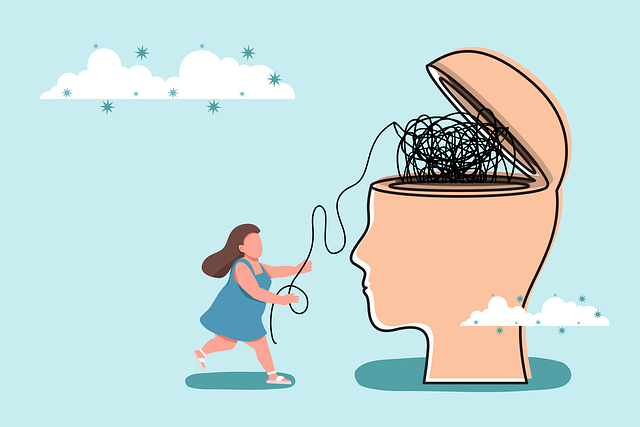Understanding codependency, as outlined by Parker Codependency Therapy, is key to designing effective stress management workshops. These sessions begin with stress and trigger identification, leading to self-awareness and boundary setting activities. Facilitators create safe spaces for emotional exploration through non-judgmental attitudes and diverse activities like Mental Wellness Journaling Exercises. Post-workshop strategies, including accessible resources and community building, ensure sustained mental wellness. Healthcare providers' involvement in cultural competency training further emphasizes the importance of ongoing support for emotional resilience.
Stress management workshops are powerful tools for personal growth and well-being. In this article, we explore effective strategies for organizing and facilitating such workshops, with a special focus on Parker Codependency Therapy. By understanding codependency as a foundational concept, designing structured curriculums, employing engaging facilitation techniques, and implementing post-workshop follow-ups, individuals can achieve lasting stress reduction and cultivate healthier relationships.
- Understanding Codependency: A Foundation for Workshop Design
- Creating a Structured Workshop Curriculum
- Facilitation Techniques to Promote Engagement and Healing
- Post-Workshop Follow-Up Strategies for Sustained Stress Reduction
Understanding Codependency: A Foundation for Workshop Design

Understanding codependency is a crucial foundation when designing workshops focused on stress management. This concept, pioneered by Parker Codependency Therapy, recognizes interdependent relationships where individuals become overly reliant on others for validation and emotional support. Such dynamics can lead to unhealthy coping mechanisms, contributing to stress and even depression prevention challenges.
By acknowledging codependent patterns, workshop facilitators can tailor activities to foster independence and self-sufficiency. Encouraging positive thinking and mental health awareness, participants learn to set boundaries, communicate effectively, and manage their responses to stressful situations. This process empowers individuals to break free from the cycle of codependency, enhancing overall well-being.
Creating a Structured Workshop Curriculum

A well-structured workshop curriculum is essential for an effective stress management program. The session should commence with an introduction to the concept of stress and its various triggers, allowing participants to recognize their personal stressors. This initial phase sets the foundation for the entire workshop by empowering individuals to identify situations or habits that contribute to their anxiety levels.
Incorporating techniques from Parker Codependency Therapy can be a game-changer. This therapeutic approach emphasizes self-awareness and healthy boundaries, which are crucial for managing stress. The curriculum could include activities focused on developing a self-care routine as a proactive measure against mental health issues like depression prevention. By teaching participants practical tools to cope with stressful situations, the workshop aims to enhance their overall mental wellness.
Facilitation Techniques to Promote Engagement and Healing

Effective facilitation techniques are instrumental in creating an engaging and therapeutic environment during stress management workshops. One evidence-based approach that has gained prominence is Parker Codependency Therapy, which encourages participants to explore their relationships and emotions for deeper understanding and healing. Facilitators can foster a sense of safety and trust by adopting an empathetic and non-judgmental attitude, allowing individuals to open up about their struggles with stress and anxiety.
Incorporating diverse activities is another powerful strategy. For instance, Mental Wellness Journaling Exercises can provide participants with a private space to reflect on their feelings and triggers. This introspective practice not only aids in depression prevention but also empowers individuals to identify patterns and develop coping mechanisms tailored to their unique needs. Moreover, integrating cultural sensitivity into the workshop ensures inclusivity, recognizing that mental healthcare practices must accommodate diverse backgrounds and perspectives for optimal healing.
Post-Workshop Follow-Up Strategies for Sustained Stress Reduction

After facilitating stress management workshops, implementing effective post-workshop follow-up strategies is vital to ensure sustained stress reduction and mental wellness. Participants should be encouraged to maintain newly acquired coping mechanisms through regular practice and reflection. This can be facilitated by providing accessible resources like a Mental Wellness Podcast Series Production tailored to the workshop’s themes, offering ongoing support that reinforces learning outcomes.
Additionally, fostering a supportive community can significantly impact long-term success. Connecting participants with one another creates a network where they can share experiences, offer encouragement, and hold each other accountable. Given the potential for workshops to address complex issues like codependency therapy, these connections can be powerful tools for emotional resilience. Engaging healthcare providers in cultural competency training around mental health awareness further reinforces the importance of ongoing support and community building.
Stress management workshops, designed with Parker Codependency Therapy principles in mind, offer a transformative path to well-being. By addressing codependency, structuring engaging curricula, and employing healing facilitation techniques, these workshops empower individuals to navigate life’s challenges with resilience. Sustained stress reduction is achievable through post-workshop follow-up strategies that reinforce learned skills. Embracing this holistic approach can lead to profound personal growth and improved mental health outcomes.











